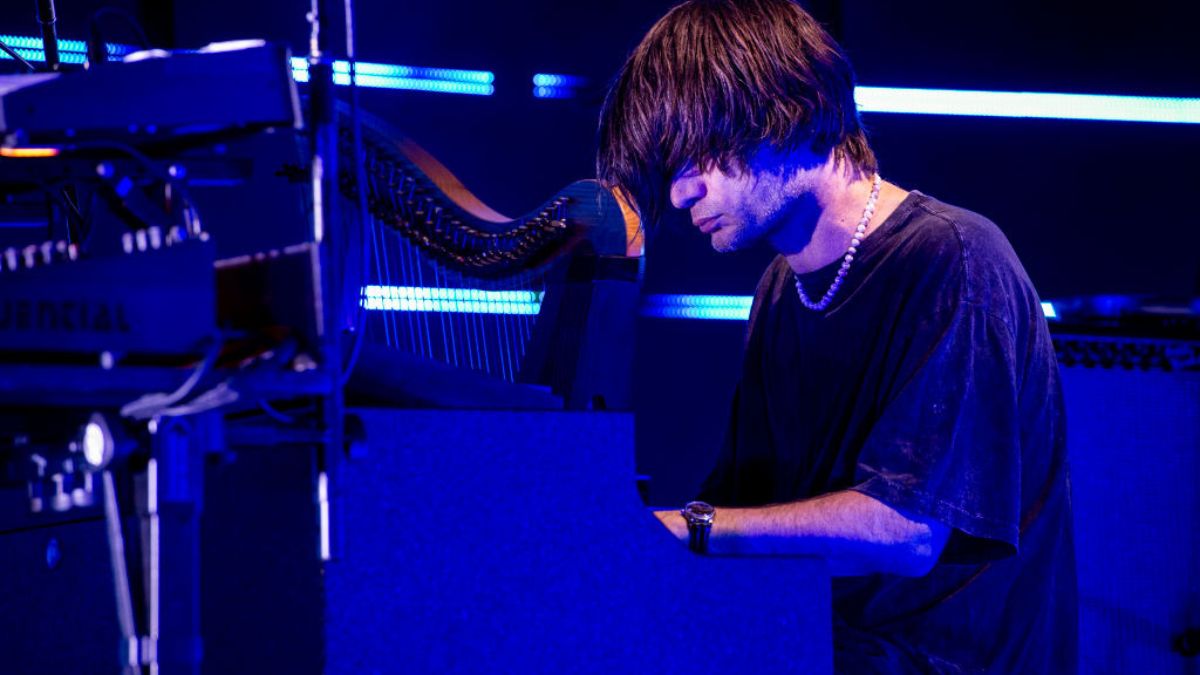This Friday, North American audiences will finally be treated to what a good deal of the world has already seen: Marvel’s big screen adaptation of Thor. With multiple directors and stars attached to the project since the 1990’s, the project has been the epitome of “long awaited”, taking a back seat to other superheroes from Spider-Man to Blade.
Recently, the cast and crew sat down to talk about the journey from Asgard to the local multiplex. We were there to hear what they had to say but due to length, we had to choose only the most important/interesting bits, we couldn’t include the entire interview.
But nevertheless, take a look below and see what the cast and crew had to say about the film. In attendance were Tom Hiddleston, Chris Hemsworth, Anthony Hopkins, Kat Dennings, Kenneth Branagh and Kevin Feige, among others. Check it out below. Audio version included at the end of the article.
QUESTION: Tom, we heard from the last panel that you one, thought you were the hero of the movie; and two, that you wanted to be Thor. Could you talk a little about that?
TOM HIDDLESTON: [LAUGHTER] Well, I think there are no villains in this world – there are just misunderstood heroes. And Loki thinks he is the hero. If you boil this film down to its barest elements, it’s about a father and two sons. And both those sons are two brothers competing for the love and affection and pride of their father, Odin, played by Tony here.
And I think there’s just sort of a deeply misguided intention within Loki. And he has a kind of a damage within him. He just goes about getting that pride in the wrong way. I’m 6’2”. So like every other English speaking actor over 6 feett who’s got blonde hair, I went up for the part of Thor, but I’m not built like a house like the man to my right.
QUESTION: Chris, could you talk about the most miserable things you did to actually get that kind of physique?
CHRIS HEMSWORTH: Yeah, the most uncomfortable thing was the eating. I didn’t mind so much the working out; I’d never really lifted weights to that capacity beforehand and it was certainly a whole new sort of education, for a good six months. But I just don’t naturally sit at that weight, so I had to force feed myself with, you know, 20 chicken breasts and rice and steak – and all very boring to the plain things. And that was the most exhausting part, I think, out of the whole film, actually was the eating. It wasn’t the fun stuff, either. It wasn’t hamburgers and pizza and what have you.
QUESTION: Loki’s such a great villain because he is so relatable and dimensional, and you don’t really know if he’s right or if he’s wrong, or what he’s feeling or thinking. So when you guys were crafting this, was it with a trajectory towards The Avengers, and are we gonna continue to see Loki as that kind of a character in The Avengers, or is it gonna be a little more diametrical?
TOM HIDDLESTON: Well, really, I just took the character that I saw in the comics. I mean, Loki is a master of magic. And he is, in the Marvel universe, the agent of chaos. And really, his superpower is his intelligence. He’s a shape shifter; and it’s his ability to stay ten steps ahead of everybody else. Ken and Chris and Tony and I all talked about having those layers in a way that he’s someone with a fierce intelligence, but also a very damaged heart. I think a red dot will form on my forehead if I give any more information about Loki and The Avengers. All I can tell you is that Loki will be in the film and it’ll take more than the man to my right to stop me this time.
QUESTION: Kat, your character held the largest comedic role throughout the film. How did you enjoy it in such a serious superhero film?
KAT DENNINGS: That’s the thing. I saw the film like a week ago, and I hadn’t seen any of the Asgard stuff. I know when you got to our parts in Santa Fe, it was just – you felt like you were on a different film. It’s a totally different thing. So it didn’t feel like, “Oh, I feel like I don’t belong anywhere.” It just, it kind of felt like he didn’t belong. And Natalie and I have been friends for years anyway. So it was actually pretty easy. We just hung out and goofed off and were girls; and poor Stellan had to listen to us talk about, like boys and nail polish.
QUESTION: For Sir Anthony Hopkins. What drew you to be a part of this, essentially a comic book movie? Was it working – given the chance to work with Kenneth Branagh, or was it the material itself?
ANTHONY HOPKINS: It’s Ken Branagh, I live in a total state of non-expectation, and I don’t expect things; and I have – I keep my expectations very low about everything, especially the last few years. And I came, had come back from a movie with Woody Allen, which was a big surprise – I enjoyed that. And then I had an agent and I left them, because I wasn’t very happy.
I got a new agent and within two days they said, “Would you like to meet Ken Branagh?” and I said, “Yeah. What about?” He said, “Odin.” I said, “Oh, that’s a god, isn’t it?” He says, “Yeah.” I think I’d gone through a patch where I was getting very indifferent to everything, you know, and I could care less about anything. And then to work with Ken, he just pushed the right buttons to get me to give of my best. And I really value that in him, because I’d gotten lazy. He’s one of the best directors I’ve worked with.
QUESTION: Chris, aside from the physical demands, how did you prepare for the role of Thor?
CHRIS HEMSWORTH: I started with the comic books; but I didn’t read all of them, there are thousands of them, 40 or 50 years’ worth. But I certainly read enough to get a sense of who he was and the world he was from. And then I read some things on Norse mythology and this sort of fatalistic view they have that everything’s preordained and that leads the Vikings into this fearless sort of attitude in battle and with their lives. And they certainly back their opinions, I think, they’re not swayed easy.
But on set, it was just about making it truthful and finding a way, a simpler way that I could relate to it – instead of thinking, “How do I play a powerful god?” it became about, as Tom said, scenes between fathers and sons and brothers. And you personalize that, and that helps ground the story, I think, for an audience. And then we can relate to it and hopefully an audience can, too.
QUESTION: Anthony, when you were first asked about working with Mr. Branagh, you said, “I was lazy, and Ken pushed my buttons.” What buttons did he push, and did he know you were lazy?
ANTHONY HOPKINS: I mean, I’m 20 years older than Ken, and I didn’t know him that well. But we we had all the same reference points of the theater. We knew about the actors we’d been working with over the years. And, you know, he did some extraordinary things 30 years ago when he was taking on people like Lawrence Olivier, you know, doing Hamlet and Henry the Fifth, Much Ado About Nothing – a colossal background. And his education is pretty profound.
So I read a lot, but I hate taxing my mind with analysis. I’m not a good analyst. I cannot talk about acting. I hate talking about it. I hate talking about analyzing. I mean, I’ve sat in conferences where you just fall asleep because it’s so boring. I don’t know, you just get up and do it. You know, the – get up and do the damned thing, instead of talking about it. And Ken is like that. He just says, “Do it.” And I like that.
But I get too much the other way, of being Mr. Cool, you know, not analyzing at all. Just walk blindly on the set. And I think what Ken does is just say, “Come on, you can do more than that,” because I’d like to just be a little restrained. And he said, “No, let’s push it even more.” And it was a welcome invitation.
QUESTION: Chris and Tom, you guys play very larger than life roles in this film. You’re going into a movie with four or five other larger than life characters. So what’s the biggest challenge that you guys see in combining all these archetypal heroes and villains into this one film?
TOM HIDDLESTON: The sort of the thing that looks like a challenge is actually the reason it’ll work, as in how, you know, how can one movie contain so many different flavors and colors and characters. And I think Joss Whedon has probably made that his strength. And the conflict between each of them will be something that will be expanded on, I think. Would you say?
CHRIS HEMSWORTH: Yeah, sure. We don’t balance all the other characters, I guess. That’s just the writer and Joss Whedon, it’s their job to sort of navigate that. And kind of like Tony was saying, you know, we come in and do our bit. And that’s sort of all you can really concern yourself with. But I definitely think it’ll be an interesting combination. And as Tom said, why it will work is that conflict in those larger than life characters and egos clashing, I think it’ll – there’ll be some great tension there.
QUESTION: Chris and Tom, could you talk a little bit about the dynamic between yourselves as actors, vying for the attention of Sir Anthony Hopkins, as well as the brotherly dynamic that went from brotherhood to rivalry, and so much as to the bloody nose one of you received on set from said rivalry.
CHRIS HEMSWORTH: I nearly caught Tom talking about having breakfast with Tony at one point. And I said, “What? He’s having breakfast and I’m not?” But no, we – you know, Tony, actually you said it, that it’s much easier to, I think height someone on screen if you actually like them off screen. It’s just a more enjoyable ride. And this is nothing sort of personal about it.
You know, we just got along and came into this at the same point in our careers, with the same sort of enthusiasm, you know, and love for these types of films. We just had a great time doing it. You either have chemistry with someone, or you don’t. And thankfully, I think it was there, and so to play brothers was, it was easy and fun.
Click here to continue reading our Thor interview.













Published: May 5, 2011 11:19 pm